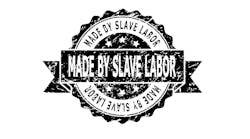Because of a recent court decision, employers will have to file their EEO-1 form with the Equal Employment Opportunity Commission (EEOC) by splitting it in two—filing one part by May 31 and a second, more detailed part by Sept. 30.
The first part contains what is termed Component 1 data (workforce demographics by job category, race, ethnicity and gender), and employers were already expected to file that by May 31. This filing has been required for some time and the commission’s EEO-1 Web portal is already open for the collection of this data.
The Component 1 data was intended to replace a much more complex and burdensome filing of data broken down by job functions and pay levels that had been adopted in 2016 during the Obama Administration and which was later blocked by the Trump administration.
Under the Obama-era requirement, employers were expected to supply W-2 form income data for their employees divided into 10 different detailed job categories, then further categorize that compensation data into 12 different salary bands, ranging from about $19,000 to more than $208,000 a year. This is now what is called Component 2 data.
It was this portion of the earlier rules that was reinstated by the federal district court judge in early March, after the commission had already set the deadline of May 31 for employers to submit their Component 1 data.
In a recent filing with the court, EEOC took note of the unreasonable burden on employers if they were expected to compile and file Component 2 pay data by May 31. The commission said it also would be impossible for it to collect and process such data as part of the 2018 EEO-1 reporting process. EEOC notes that it would take nine months to modify its current processes to support collecting large amounts of sensitive Component 2 pay data from last year.
EEOC also said it is not capable of collecting the Component 2 data itself and would need to retain a data and analytics contractor to provide the processes, procedures and systems to undertake and close the collection by September 30, 2019. EEOC estimated that this would end up costing taxpayers more than $3 million.
In addition, the commission’s chief data officer Samuel “Chris” Haffer warned that “there is a serious risk that the expedited data collection process may yield poor quality data because of the limited quality control and quality assurance measures that would be implemented due to the expedited timeline.”
Lawyers with the law firm of Littler Mendelson observed, “The use of a third party to collect and hold such sensitive data is of obvious concern to employers.” Employers trust EEOC to maintain the confidentiality of their data because the law makes it a crime for any officer or employee of the EEOC to make EEO-1 data public,” they noted. “Whether the EEOC can properly comply with this congressional mandate to maintain confidentiality while delegating the collection process to a third party is not clear.”
It is unknown at this time whether the EEOC and Administration will appeal the decision that was handed down in early March by U.S. District Court Judge Tanya Chutkan. What is known is that she already has displayed little patience with either body. Two weeks after her decision, Chutkan called the EEOC on the carpet and freely expressed her anger at the fact that the commission had failed to report on the decision on its website and notify employers of the reinstatement that the vastly more complicated Obama-era filing requirements were now in force.
The EEO-1 form has been required under federal civil rights law in one version or another for more than five decades. The annual survey must be filed with EEOC by all private employers with 100 or more employees. Also required to file are federal government contractors and first-tier subcontractors with 50 or more employees and a federal contract, subcontract or purchase order amounting to $50,000.




